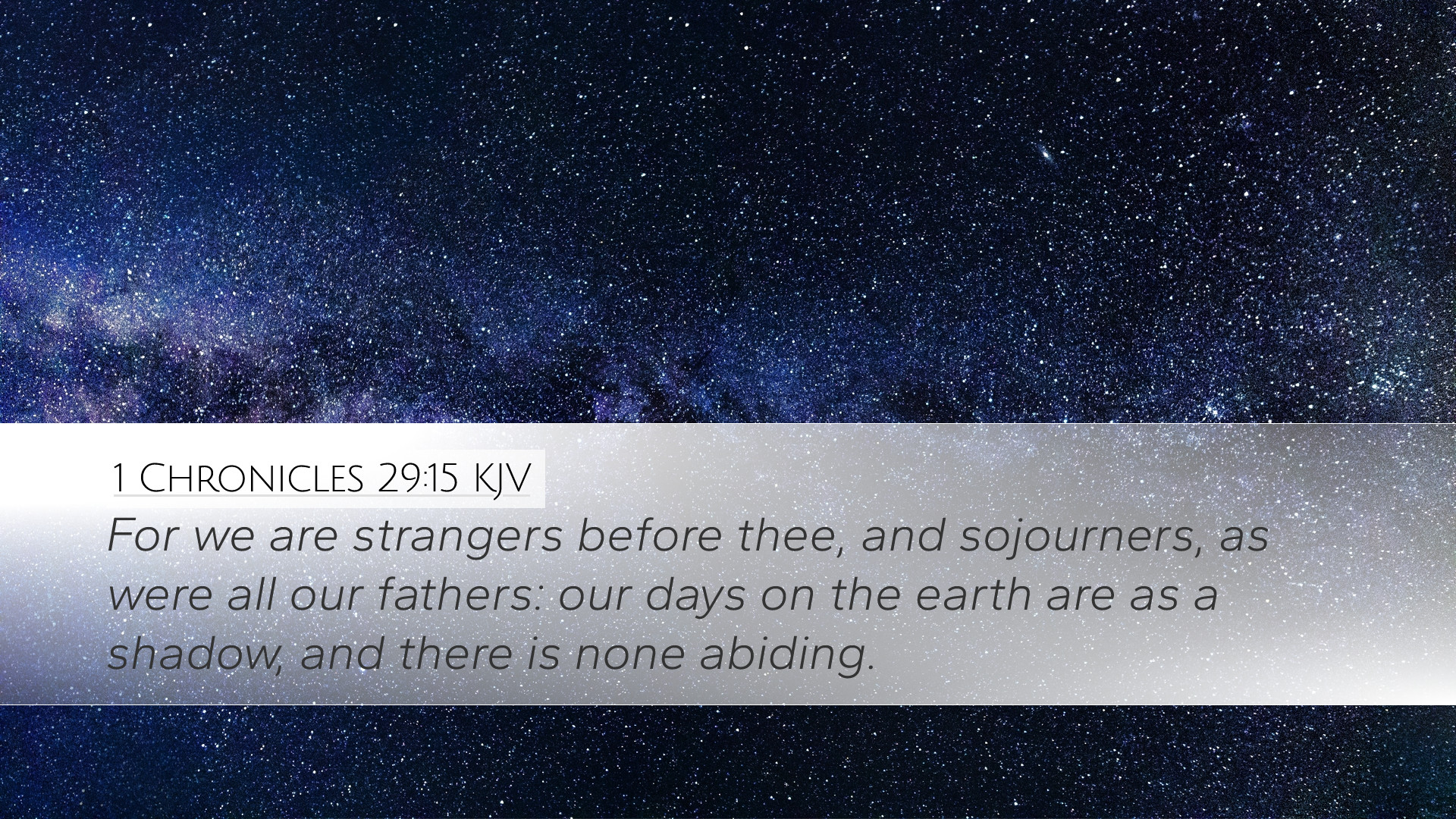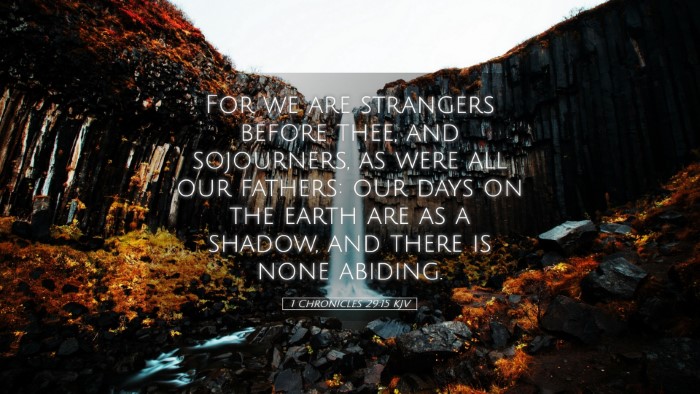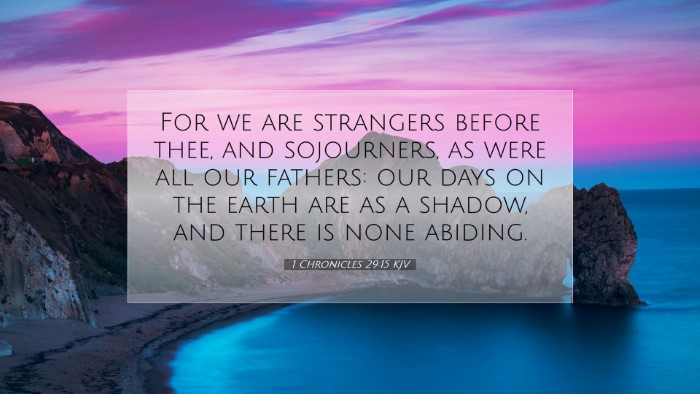Commentary on 1 Chronicles 29:15
Verse Reference: 1 Chronicles 29:15
"For we are strangers before thee, and sojourners, as were all our fathers: our days on the earth are as a shadow, and there is none abiding."
Introduction
The verse serves as a poignant reminder of the transient nature of human life and the need for humility in the presence of God. In the context of King David's prayer, it speaks to the broader theme of human dependence on God and the acknowledgment of our earthly pilgrimage. This commentary will draw from the insights of noted public domain scholars, including Matthew Henry, Albert Barnes, and Adam Clarke, to delve into the spiritual implications of this verse.
The Context of 1 Chronicles 29
Before dissecting the verse, it is essential to understand its context within the chapter. King David is nearing the end of his reign and is preparing for the construction of the Temple – a task that would be carried out by his son Solomon. David gathers the leaders of Israel and offers a heartfelt prayer of worship, acknowledging God's greatness and the generosity of the people in providing for the Temple's needs.
The Nature of Human Existence
In examining the statement, "For we are strangers before thee," we are confronted with the reality of our existence as temporary inhabitants of this world:
- Human Pilgrimage: As Matthew Henry notes, this acknowledgment of being "strangers" and "sojourners" highlights the fact that life on earth is a journey. Our time here is limited and characterized by transience.
- Historical Reflection: The reference to "all our fathers" serves as a historical reminder of humanity's ongoing struggle with mortality. Just as previous generations have passed away, so too will we.
The Metaphor of Shadows
The phrase "our days on the earth are as a shadow" suggests a fleeting and insubstantial quality to our earthly existence:
- Transience and Illusion: Adam Clarke points out that shadows are temporary and without substance. Thus, the days of our lives may appear solid, yet are ephemeral in nature.
- Dependence on God: Recognizing the brevity of life fosters a reliance on God's eternal nature, encouraging believers to seek His guidance and strength as they navigate their earthly journey.
Theological Implications
This verse encapsulates profound theological themes central to the life of faith:
- Humility Before God: In acknowledging our transient state, we are drawn to humility. As Albert Barnes articulates, such humility allows us to approach God with a clearer understanding of our need for His grace.
- Hope Beyond the Shadow: While this verse reminds believers of their mortality, it equally points to a greater hope in God’s promises. The fleeting nature of life underscores the importance of investing in eternal things.
- Community and Legacy: The mention of "our fathers" suggests the need for community reflection. Believers are called to learn from the journeys of their predecessors, fostering a sense of continuity and shared faith in God’s providential care.
Practical Applications
For pastors, theologians, and students of the Word, this passage invites several practical considerations:
- Living with Purpose: Understanding life's transience encourages individuals to focus on making meaningful contributions to God's kingdom during their time on earth.
- Encouraging Fellow Believers: This verse can serve as a source of encouragement in preaching and teaching contexts, reminding congregations of the hope found in Christ amid life’s brevity.
- Reflection on Spiritual Legacy: Believers are called to consider the legacy they leave behind, both in terms of faith and community. Emphasizing values that endure beyond mortal life strengthens communal bonds in Christ.
Conclusion
1 Chronicles 29:15 serves as a rich tapestry of theological truths and practical exhortations. By reflecting on our status as strangers and the ephemeral quality of our earthly sojourn, we are urged to maintain a posture of humility before our eternal Creator. Furthermore, the lessons drawn from our forebears encourage us to live purposeful lives, anchored in the hope of God’s eternal promises. Commentators like Matthew Henry, Albert Barnes, and Adam Clarke provide valuable insights that deepen our understanding of this text, ultimately guiding believers toward a more substantial relationship with God.


